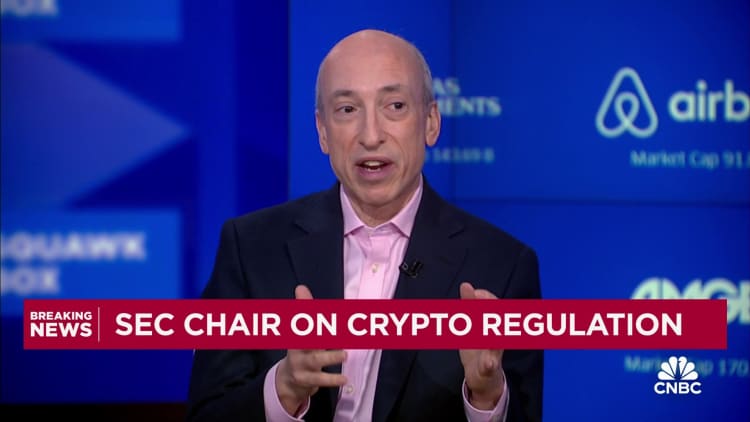Vasily Pindyurin | fStop | Getty Images
Consumers lost a record $10 billion to fraud in 2023, and imposter scams were the most prevalent swindle, according to the Federal Trade Commission.
Nearly 854,000 people filed complaints to the FTC about imposter scams last year, representing 33% of the total consumer fraud reports filed to the agency.
Consumers lost $2.7 billion to such scams in 2023, according to FTC data. The average loss was $800.
More from Personal Finance:
FBI: ‘Financial sextortion’ of teens is ‘rapidly escalating threat’
How this 77-year-old widow lost $661,000 in a common tech scam
Why this popular service is like ‘payday lending on steroids’
Imposter scams come in many forms but share a basic premise: Criminals pretend to be someone you trust to convince you to send them money, or to get information that can later be leveraged for money, experts said.
People may falsely claim to be a romantic interest, the government, a relative in distress, a well-known business or a technical support expert, the FTC said in a recent report.
Fraudsters, often part of sophisticated organized crime networks, may contact potential victims via channels like e-mail, phone call, text, mobile apps, social media or traditional snail mail.
The internet has ‘really supercharged’ imposter scams
Government impersonators, for example, might suggest they work for the Social Security Administration, IRS, Medicare or even the FTC. Others may say they’re from a company like Amazon or Apple and claim there’s something wrong with your account, or from your utility company threatening to turn off service. Others may say they’re a close friend or family member and need money for an emergency.
Nascent and improving technology, like artificial intelligence and voice cloning, has made these frauds more convincing, experts said.
“These scams have been around forever, really, but the internet has really supercharged them,” said John Breyault, VP of public policy, telecommunications and fraud at the National Consumers League. “The scammers seem to be getting better at what they’re doing.”
Additionally, imposter scams have a low barrier to entry for criminals, another likely reason they’ve proliferated, said Hardeep Rai, product director at Feedzai, a fraud detection service used by financial institutions.
“You get [hold of] a bunch of phone numbers and call,” Rai said. “It’s an infinitely scalable fraud in that sense.”
Older adults tend to lose more money
Older victims were less likely than younger ones to report losing money to all types of fraud, but their typical loss was higher. For example, victims age 80 and older had a median loss of $1,450; by comparison, the typical loss didn’t exceed $500 for those younger than 70.
The FBI reported last year that a subset of imposter scam — a type of tech-support fraud known as a “phantom hacker” scam — was on the rise nationally, “significantly impacting” older Americans.
Such cybercrimes are multilayered: Initially, fraudsters generally pose as computer technicians from well-known companies and persuade victims they have a serious computer issue such as a virus, and that their financial accounts may also be at risk from foreign hackers.
Accomplices then pose as officials from financial institutions or the U.S. government, who convince victims to move their money from accounts that are supposedly at risk to new “safe” accounts, under the guise of protecting their assets.
These tech-support scams often wipe out seniors’ entire bank, savings, retirement or investment accounts, the FBI said.
“This is money people have worked for a lifetime to build up,” Breyault said. “For many victims, they don’t have time to recover: They’re older people or people of limited means.”
In addition to financial loss, “we know fraud causes significant emotional and psychological harm,” he added.

Cryptocurrency accounted for the largest fraud losses relative to other payment methods, while bank transfers and payments were No. 2, according to FTC data. Fraud victims lost $1.9 billion and $1.4 billion via these payment channels, respectively, in 2023.
Consumers often have limited legal recourse to get their money back in these cases: Victims who are duped into authorizing a transaction (i.e., voluntarily sending money to criminals) generally have weaker financial protections than those ripped off by unauthorized transactions, Breyault said.
How to protect yourself from imposter scams
The most effective steps consumers can take to protect themselves from imposter scams are to “pause and verify,” Rai said.
Fraudsters prey on fear and urgency, hoping to trigger a knee-jerk emotional reaction from victims.
“They’re playing a nasty psychological game,” Rai said.
Consumers who receive an unsolicited message from someone – even if it appears to be someone you know — asking to move money or make a transaction should pause, think about the request and avoid being pressured into it, he said. This may make a fraudster go off-script and give consumers a sense to engage their rational decision-making, he added.
“It pays to be skeptical,” Breyault said.
They’re playing a nasty psychological game.
Hardeep Rai
product director at Feedzai
Additionally, consumers should verify who they’re communicating with, experts said.
Don’t respond to an unsolicited message, Breyault said. Instead, call the official number on your bill or the back of your bank card and ask them to verify the veracity of the initial communique.
Likewise, don’t click a link or call a number in an unsolicited message or pop-up window; independently seek out the respective official website or other communication channel.
In that case, “you are the one controlling that communication,” Breyault said.
“It’s easy to think this wouldn’t happen to you,” Rai said. “But everyone is susceptible to fraud. Fraudsters are very, very advanced.”








